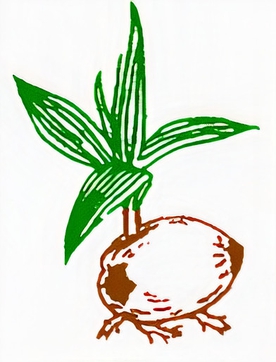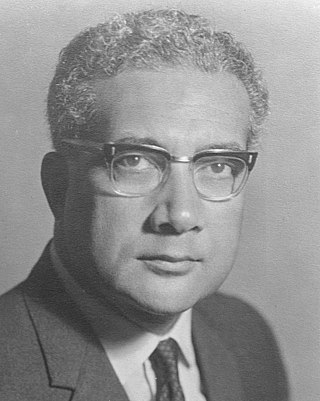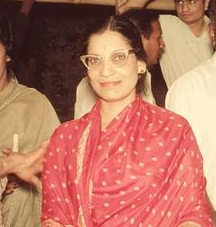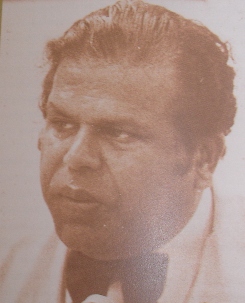
The Fiji Labour Party, also known as Fiji Labour, is a political party in Fiji. Most of its support is from the Indo-Fijian community, although it is officially multiracial and its first leader was an indigenous Fijian, Dr. Timoci Bavadra. The party has been elected to power twice, with Timoci Bavadra and Mahendra Chaudhry becoming prime minister in 1987 and 1999 respectively. On both occasions, the resulting government was rapidly overthrown by a coup.

The United Fiji Party was a political party in Fiji. It was founded in 2001 by Prime Minister Laisenia Qarase as a power base; it absorbed most of the Christian Democratic Alliance and other conservative groups, and its endorsement by the Great Council of Chiefs (Bose Levu Vakaturaga) caused it to be widely seen as the successor to the Alliance Party, the former ruling party that had dominated Fijian politics from the 1960s to the 1980s. It drew its support mainly from indigenous Fijiians.

RatuSir Kamisese Mara, was a Fijian politician, who served as Chief Minister from 1967 to 1970, when Fiji gained its independence from the United Kingdom, and, apart from one brief interruption in 1987, the first Prime Minister from 1970 to 1992. He subsequently served as president from 1993 to 2000.

Irene Jai Narayan was an Indian-born teacher and politician, who had a significant influence on politics in Fiji. She came to Fiji in 1959 after marrying Jai Narayan, a well known school Principal in Suva, and began her career as a teacher. She taught in DAV Girls School and MGM High School in Suva before entering politics.

Siddiq Moidin Koya was a Fijian Indian politician, Statesman and Opposition leader. He succeeded to the leadership of the mostly Indo-Fijian National Federation Party (NFP) on the death of the party's founder, A. D. Patel, in October 1969, remaining in this post until 1977. He later served a second term as leader of the NFP, from 1984 to 1987.

General elections were held in Fiji between 15 and 29 April 1972, the first since independence from the United Kingdom in 1970. They were characterised by the lack of rancour between racial groups, typical of the 1966 general election and the 1968 by-elections.

General elections were held in Fiji between 8 and 15 May 1999. They were the first election held under the revised Constitution of 1997, which instituted a new electoral system and resulted in Mahendra Chaudhry taking office as Fiji's first Indo-Fijian Prime Minister, following a landslide victory for the Fiji Labour Party. It was also a wipeout loss for the incumbent Soqosoqo ni Vakavulewa ni Taukei (SVT) government of Sitiveni Rabuka, which lost all but eight seats and won less seats than the Fijian Association Party (FAP).

The National Federation Party is a Fijian political party founded by A. D. Patel in November 1968, as a merger of the Federation Party and the National Democratic Party. Though it claims to represent all Fiji Islanders, it is supported, in practice, almost exclusively by Indo-Fijians whose ancestors had come to Fiji between 1879 and 1916, mostly as indentured labourers. However, in the 2018 general election, the party recorded a considerable change in its support base due to the inclusion of more indigenous Fijian candidates.

Fiji's parliamentary election of March 1977 precipitated a constitutional crisis, which was the first major challenge to the country's democratic institutions since independence in 1970.

The National Alliance Party of Fiji (NAPF) was a Fijian political party. It was formally registered on 18 January 2005 by Ratu Epeli Ganilau, as the claimed successor to the defunct Alliance Party, which ruled Fiji from 1967 to 1987 under the leadership of the late Ratu Sir Kamisese Mara, Ganilau's father-in-law. Others involved with the party included university lecturer Meli Waqa as party secretary, and Manu Korovulavula as treasurer. The Deputy Leader was Hirdesh Sharma. The party was launched publicly at a mass rally in Suva on 8 April 2005.
Sir Vijay Raghubar Singh, KBE was an Indo-Fijian lawyer and politician who held Cabinet office in the 1960s and 1970s. Vijay Singh served in Prime Minister Ratu Sir Kamisese Mara's government in a variety of positions, including Attorney-General, and was president of the Indian Alliance, a division of the ruling Alliance Party. He quit the party in 1979 following disagreement with Alliance leadership and later joined the opposition National Federation Party. Vijay Singh was involved in the restructure of the Fiji sugar industry and was a leading member of the Jaycees movement in Fiji.

Ambalal Dahyabhai Patel, better known as A.D. Patel, was an Indo-Fijian politician, farmers' leader and founder and leader of the National Federation Party. Patel was uncompromisingly committed to a vision of an independent Fiji, with full racial integration. He was one of the first to advocate a republic, an ideal not realized in his lifetime. He also advocated a common voters' roll and opposed the communal franchise that characterized Fijian politics.

General elections were held in Fiji between 26 September and 8 October 1966, the last before independence in 1970 and the first held under universal suffrage. The result was a victory for the Alliance Party, which won 23 of the 34 elected seats. Its leader Kamisese Mara became the country's first Chief Minister the following year.

Communal constituencies were the most durable feature of the Fijian electoral system. In communal constituencies, electors enrolled as ethnic Fijians, Indo-Fijians, Rotuman Islanders, or General electors vote for a candidate of their own respective ethnic groups, in constituencies that have been reserved by ethnicity. Other methods of choosing parliamentarians came and went, but this feature was a constant until their final abolition in the 2013 Constitution.

National constituencies were a former feature of the Fijian electoral system. They were created as a compromise between demands for universal suffrage on a common voters' roll, and for a strictly communal franchise, with Parliamentary constituencies allocated on an ethnic basis and elected only by voters enrolled as members of specific ethnic groups.
James Shankar Singh, MBE was a Fiji Indian farmer, businessman, social worker and politician who served as a Minister in the Alliance Government of Ratu Sir Kamisese Mara. Like many Fiji Indian politicians of the era, he joined the Alliance Party with a belief in mutiracialism, but was disappointed with the Alliance Party's appeal to Fijian nationalism after 1977 and left the Alliance to join the National Federation Party.

The National Congress of Fiji was a Fijian political party that existed from 1965 to 1967. It was created to represent Indo-Fijians as a rival to the Citizens Federation. It soon merged, along with the General Electors Association, which mainly represented Fijians of European descent, to form the Alliance Party.
The Federation Party was Fiji's first formal political party. The Citizens Federation, which had won three of the four seats reserved for Indo-Fijians at the 1963 elections, decided to formalize its role as a political party, which was officially founded on 21 June 1964 with A. D. Patel as President and Sidiq Koya as Vice-President. The merger took place in time for the party to participate in the 1965 constitutional conference which was called to map out a path towards independence from the United Kingdom. In 1968, the Federation Party merged with the National Democratic Party to form the National Federation Party, which is now (2021) the oldest political party in Fiji still in existence.








